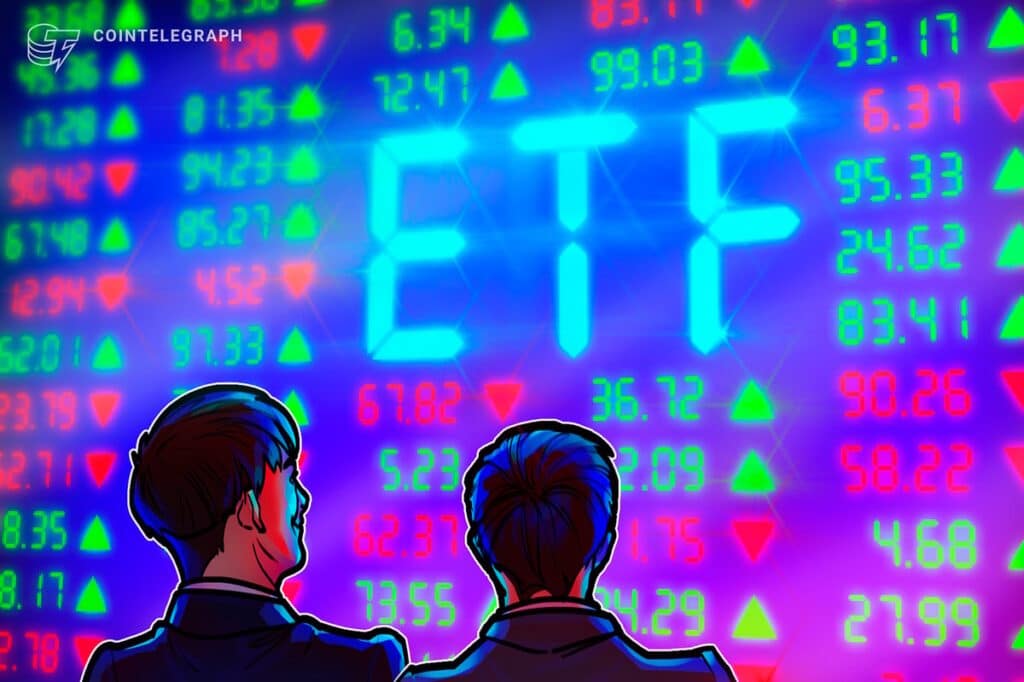Ethereum ETFs Pushed to May, Bitcoin ETFs in January Approval: Legislation Decided, December 18-25

The United States Securities and Exchange Commission is pushing back its decision on several Ether (ETH) exchange-traded funds (ETFs) to May 2024. The Hashdex Ether ETF aims to hold both spot Ether and futures contracts, while the Grayscale Ethereum Futures ETF acts as a “Trojan horse” to allow the SEC to convert the Grayscale Ethereum trust into an Ethereum ETF. In the documents, the agency said it was developing procedures that would include gathering more public input on whether or not the ETF should be listed. The agency pushed back on the VanEck spot Ethereum ETF and Cathie Wood's ARK Invest and 21Shares spot Ethereum ETF.
However, some analysts expect confirmations regarding Bitcoin (BTC) spot ETFs as early as 2024. Bloomberg ETF analysts James Seifert and Eric Balchunas estimate that the US SEC will approve a spot Bitcoin ETF by January 2024, despite the many last-minute amendments applicants are scrambling to add to their proposals. Seifert shared his thoughts on BlackRock's latest position on Bitcoin ETF reform, which has adopted the SEC's cash redemption system, which refers to in-kind redemptions or non-monetary payments such as BTC.
The analyst noted that many applicants such as ARK, Bitwise and Valkyrie have already developed a cash-only model, with some – including Greyscale and Wisdomtree – still offering in-kind or cash. In mid-December, financial attorney Scott Johnson predicted that ETF applicants would eventually have to bend the knee to use the ETF's cash creation and redemption model.
Montenegro will not extradite Do Kwon
A Montenegrin court has canceled the extradition of Terraform Labs co-founder Do Kwon to both the US and South Korea. Podgorica's High Court previously ruled on the legal requirements for Kwon's extradition in November 2023, leaving the final decision to Montenegro's justice minister. According to the final decision of the Court of Appeal, Kwon's defense successfully appealed the decision and the case must be returned to the Basic Court of Podgorica for retrial. A panel of the Court of Appeals assessed that the earlier decision by the High Court of Podgorica was vitiated by “gross violations” of Montenegro's Criminal Procedure Code.
Continue reading
Binance will pay $2.7 billion to the CFTC
A US court has entered an order against crypto exchange Binance and its former CEO Changpeng “CZ” Zhao, ordering Binance to pay $2.7 billion and CZ $150 million in commodity futures trading commissions. The CFTC announced that the U.S. District Court for the Northern District of Illinois approved the previously announced settlement and ended the enforcement action originally issued by the CFTC in November. The court ruled that Zhao and Binance violated the Commodity Exchange Act (CEA) and CFTC regulations, imposed a $150 million civil monetary penalty on Zhao individually, and ordered Binance to forfeit $1.35 billion in illegally obtained trading fees and pay a $1.35 billion fine. CFTC,” the CFTC wrote in a statement. The approved settlement marks the conclusion of the CFTC's long-running case against CZ and Binance. The agency accused the executive and the exchange of evading federal law and operating an illegal exchange.
Continue reading
China tightens rules for online gaming
The General Administration of Press and Publications (GAPP) of China aims to limit the scope of activities related to in-game tokens. GAPP has published draft guidelines for the online gaming industry, prohibiting the purchase of physical goods and the exchange of game tokens for legitimate auctions. The guide contains 62 articles and covers many issues related to the regulation of online games. It offers some strict rules: the companies must obtain a license in China, store their customers' data for up to two years, ensure that their content is linked to a list of nationalistic and socialist values, and rule out any possibility of anonymous registration. Users.
Article 23 regulates the use of game symbols. It is going to prohibit the use of Game Tokens to purchase physical goods by replacing them with “Products and Services of Other Categories” or “Legal Tender”. The latter point leaves room for speculation, as cryptocurrencies do not qualify as legal tender in China and there is nothing specific about “crypto” in the guidelines. However, GAPP seems to be trying to protect online game economies from a strict exchange with the real economy.
Continue reading













